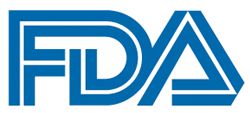Bevacizumab Approved by FDA to Treat Ovarian Cancer Following Surgery
Based on results from the phase III GOG-0218 trial, bevacizumab (Avastin) has been approved by the FDA for use in combination with carboplatin and paclitaxel, followed by bevacizumab monotherapy, for the treatment of women with advanced ovarian cancer following initial surgical resection.

Based on results from the phase III GOG-0218 trial, bevacizumab (Avastin) has been approved by the FDA for use in combination with carboplatin and paclitaxel, followed by bevacizumab monotherapy, for the treatment of women with advanced ovarian cancer following initial surgical resection.
Findings of the study showed the bevacizumab regimen reduced the risk of disease progression or death by 38% compared with chemotherapy alone. The median progression-free survival (PFS) was 18.2 months versus 12.0 months, respectively (HR, 0.62; 95% CI, 0.52-0.75;P<.0001).1
“Today’s approval is an important advance for women newly diagnosed with this type of ovarian cancer,” Sandra Horning, MD, chief medical officer and head of Global Product Development, Genentech, the manufacturer of bevacizumab, said in a statement. “We’re committed to advancing medicines in areas of unmet need and this FDA approval of Avastin plus chemotherapy gives women with advanced ovarian cancer a new treatment option that has been shown to significantly delay disease progression or death.”
The multicenter, double-blind, placebo-controlled phase III GOG-0218 trial randomized 1873 women with stage III/IV ovarian cancer who had undergone debulking surgery to receive chemotherapy alone with AUC 6 carboplatin and 175 mg/m2of paclitaxel for cycles 1 to 6 (n = 625); the same chemotherapy regimen with bevacizumab-initiation from cycles 2 through 6 followed by placebo in cycles 7 through 22 (n = 625); or the same chemotherapy with bevacizumab added in cycles 2 through 22 (bevacizumab throughout; n = 623). Bevacizumab was administered at 15 mg/kg every 3 weeks.
The primary endpoint of the study was PFS, with overall survival (OS) as a secondary endpoint.
The median PFS was 12.8 months for patients receiving bevacizumab/chemotherapy followed by placebo (HR of 0.83 vs chemotherapy alone; 95% CI, 0.70-0.98; nonsignificant).
In the final OS analysis, the median OS was 43.8 months with bevacizumab/chemotherapy followed by bevacizumab, compared with 40.6 months with chemotherapy alone (HR, 0.89; 95% CI, 0.76-1.05). The median OS with bevacizumab plus chemotherapy followed by placebo was 38.8 months (HR of 1.06 vs chemotherapy alone; 95% CI, 0.90-1.24).
The most common grade 3/4 adverse events were fatigue (9% with the approved regimen; 6% with bevacizumab/chemotherapy followed by placebo; and 6% with chemotherapy alone), high blood pressure (10%, 6%, 2%, respectively), decreased platelet count (21%, 20%, 15%, respectively) and decreased white blood cell count (51%, 53%, 50%, respectively).
Data from the primary GOG-0218 analysis were published in theNew England Journal of Medicinein December 2011.2Baseline data provided in the article showed that patient characteristics were well balanced between the arms. The median age was 60, over 80% of patients in each arm were white, and over 90% of patients had a GOG performance status of 0 or 1. Over 80% of patients in each arm had serous adenocarcinoma and nearly three-fourths of patients in each arm had grade 3 tumors.
“This approval represents an important milestone as the first medicine, other than chemotherapy, for women with advanced ovarian cancer after their initial surgery,” Melissa Aucoin, chief executive officer, National Ovarian Cancer Coalition, said in a statement. “Ovarian cancer is the fifth leading cause of cancer-related deaths among women in the United States, and this approval underscores Genentech’s dedication to bringing new treatment options to women with gynecological cancers.”
Beyond ovarian cancer, bevacizumab also has approved indications in colorectal cancer, cervical cancer, lung cancer, renal cell carcinoma, and glioblastoma.
References:
- FDA Approves Genentech’s Avastin (Bevacizumab) Plus Chemotherapy as a Treatment for Women With Advanced Ovarian Cancer Following Initial Surgery. Genentech. Published June 13, 2018. Accessed June 13, 2018. https://bit.ly/2JQiUIv.
- Burger RA, Brady MF, Bookman MA, et al. Incorporation of bevacizumab in the primary treatment of ovarian cancer.N Engl J Med. 2011;365(26):2473-83. doi: 10.1056/NEJMoa1104390.